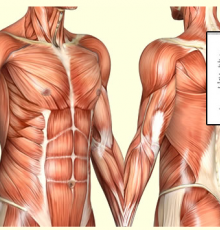 Introduction to Anatomy and Physiology (BIO160) is a one semester tour of our human bodies and how they function, from the cell and molecular level all the way up to the whole organism (you!).
Introduction to Anatomy and Physiology (BIO160) is a one semester tour of our human bodies and how they function, from the cell and molecular level all the way up to the whole organism (you!).
Whether you are taking this course as a prerequisite for your radiological technician or mortuary science program or need to satisfy the lab science requirement of your general education studies, everyone has one (or two!) of the things that we discuss so we all should have an interest!
With the medical terminology you'll be learning, this class is like a language and science class all in one!
Think of how smart you'll sound chatting with your friends about the science of eructation (burping), micturition (we'll let you look that one up) and other related topics!
Learning tools used in this course include models, charts, microscopes, preserved animal specimens for dissection (like sheep heart, brain, eye) and human specimens for demonstration (preserved cadavers and/or plastinated organs) as well as various tools like Electrocardiograms (ECGs), sphygmomanometers (blood pressure cuffs), and spirometers (for measuring lung volumes) just to name a few.
This course has no prerequisites and satisfies the SQ (Science Quantitative) requirement for Associate's Degree paths as well as being transferable to local universities and beyond. Students taking this class are commonly non-majors looking to satisfy their lab science requirement but also many are pursuing health science related or technician level positions including programs in respiratory therapy, sonography, radiological technician, social work and mortuary science. (Most nursing programs require the full year anatomy and physiology sequence of BIO201 and BIO202 but check with your particular program of interest to be sure.)
Interested? Questions?
Contact the Life Science Department for more information @ 480-461-7115.
Course Description
|
Introduction to Human Anatomy and Physiology BIO 160 |
|---|
|
Principles of scientific method. Structural organization, homeostasis and control mechanisms of the body. Specific chemistry concepts. Structure and function of the major systems of the body. |
|
Prerequisites: None. |
|
Course Attribute(s): General Education Designation: Natural Sciences (Quantitative) - [SQ] |

